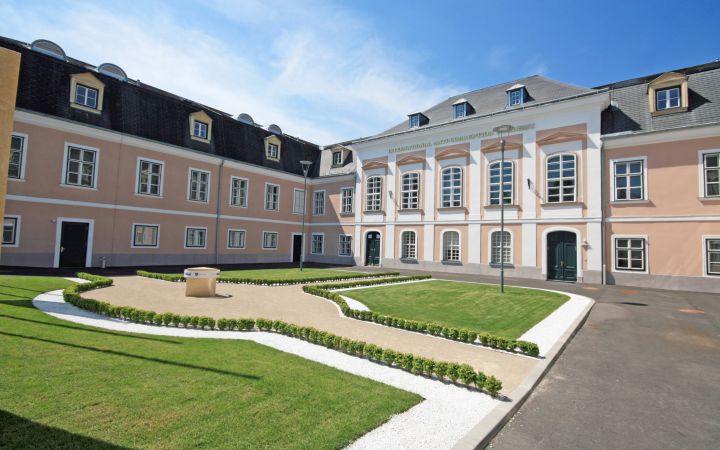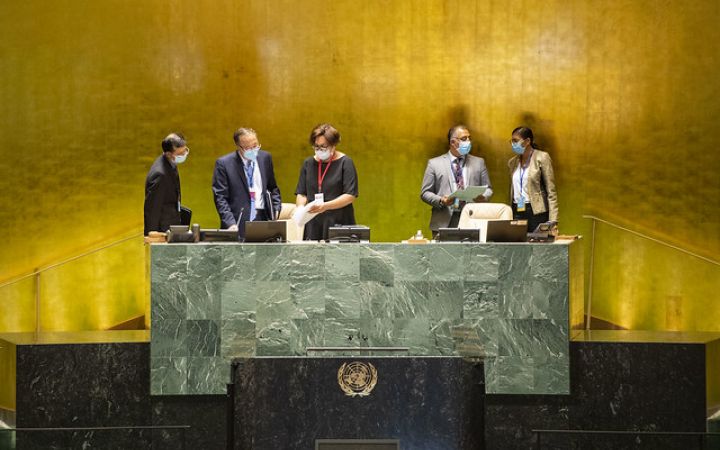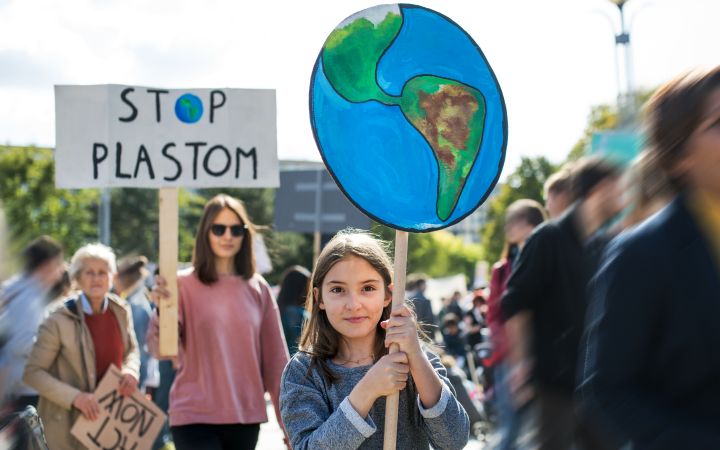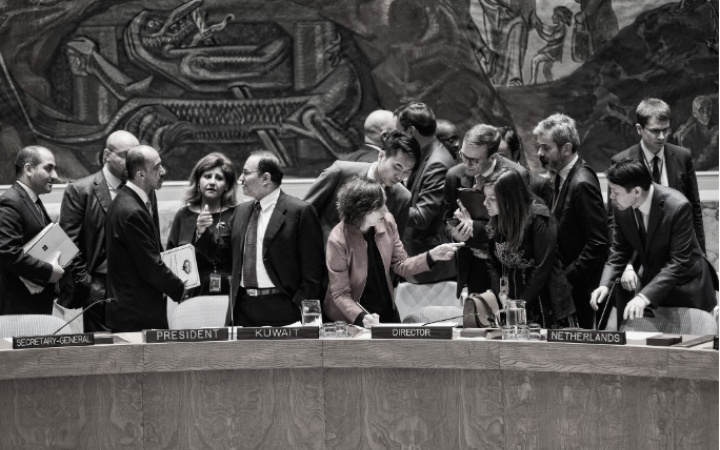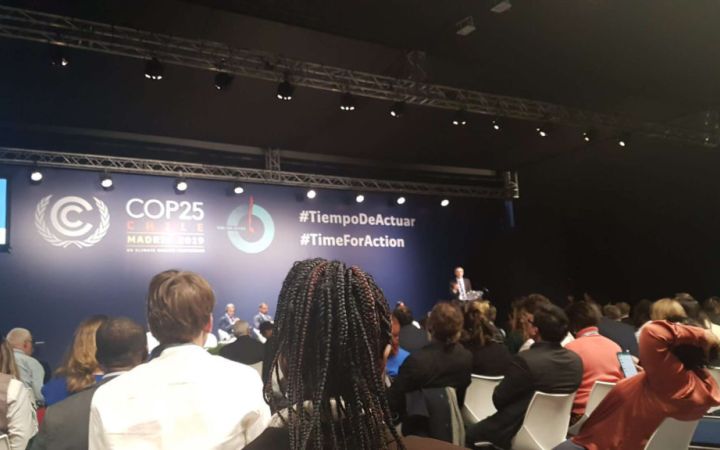Displaying 1041 - 1050 of 1540
UNITAR is pleased to announce the launch of a new Master Programme in Anti-Corruption and Diplomacy and an Executive Diploma in Anti-Corruption and Diplomacy in cooperation with the International Anti-Corruption Academy.
UNITAR seeks to fulfill its mandate of delivering innovative learning solutions to individuals, organizations and institutions in order to enhance global decision-making and support country-level action for shaping a better future, as well as its objective to reach the furthest first through the creation of a scholarship fund. This scholarship fund will be created from the revenue from the fundraising lecture series.
he largest ever opinion survey on climate change was carried out by UN CC:Learn partner UNDP in 2020 and showed that 64% of 1.2 million respondents think that climate change is a global emergency. The survey entitled "People's Climate Vote" covered 50 countries, reflecting a bit more than half of the world's population, and its results were analyzed by the University of Oxford. Find out the results.
Natallia noted that more and more officials and experts in the field are completing FAO-UNITAR courses, which is also conducive for the promotion of new ideas at the national level.
28 February 2021, Hiroshima, Japan – The NPO Hiroshima Yokogawa Sports Culture Club and the United Nations Training and Research Institute (UNITAR) are pleased to announce the signing of a memorandum of understanding (MOU) that will strengthen their mutual commitment to using the power of sports in pursuit of peacebuilding. Activities covered by the agreement will focus on sustainable development, gender equality and the empowerment of women and youth.
Together with ADN Group, UNITAR is organizing the second edition of World Negotiation Day on 9 March 2021. The event will bring together some of the world’s top negotiators from the public and private sectors – ambassadors, leaders, and executives – who have shaped some of the pivotal events of 2020.
19 February 2021, Geneva, Switzerland - Romanian speakers can now embark on a journey to learn the basic concepts, policy instruments and international frameworks of inclusive green economies.
19 February 2021, Geneva, Switzerland - 17 professionals have been trained on how to deliver effective online adult learning in West Africa as part of a four-session training of trainers organized by UN CC:Learn and the Partnership for Action on Green Economy (PAGE).
19 February 2021, Geneva, Switzerland - UNITAR/UN CC:Learn and MIET Africa are turning climate change into an everyday topic in Malawi, Zambia and Zimbabwe. Through a series of TV and radio programs, the two projects are streamlining the access to climate change discussions and raising awareness of this issue among people who previously didn't have a chance to get any information about it.
19 February 2021, Geneva, Switzerland - The Green Development and Climate Change Programme and the Multilateral Diplomacy Division joined forces to deliver the Online Training Programme on Climate Change Diplomacy, at which 35 Kenyan diplomats, government officials, and civil society representatives were trained on climate diplomacy. The training took place between 13 November and 8 December 2020 and provided participants with knowledge on climate change and climate diplomacy, building their capacity for the upcoming climate negotiations at COP 26.


